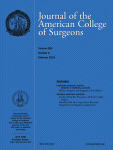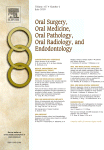 A duplicated figure has resulted in an expression of concern for a paper in the American Journal of Pathology on a treatment for ocular neovascularization, which causes vision loss.
A duplicated figure has resulted in an expression of concern for a paper in the American Journal of Pathology on a treatment for ocular neovascularization, which causes vision loss.
According to the notice, the corresponding author, David Shima, now at University College London, brought his concern to the journal. He called it a “genuine error” and stated that all the findings had been reproduced.
Unfortunately, Shima claimed the original data are missing, because the institution that owned the information — Eyetech Research Center — has “since gone through several acquisitions.”
Ocular neovascularization occurs when growth signals in the eye stimulate the creation of many new blood vessels. Over time these blood vessels break, causing bleeding and scarring that limits vision. This is called “wet” macular degeneration.
The scientists found that giving patients drugs to limit two different growth factors at the same time is more effective than one at stopping the progression of AMD. This combination method is in stage three clinical trials, though with different drugs than the authors used here.
The paper, published in 2006, has been cited 130 times, according to Thomson Scientific’s Web of Knowledge. Here’s the EoC for “Inhibition of Platelet-Derived Growth Factor B Signaling Enhances the Efficacy of Anti-Vascular Endothelial Growth Factor Therapy in Multiple Models of Ocular Neovascularization”:
Continue reading “Genuine error” sees expression of concern for vision loss paper
 Materials Letters has withdrawn an article in press after the editor found out the first author, Yan Li, had taken all the data without permission.
Materials Letters has withdrawn an article in press after the editor found out the first author, Yan Li, had taken all the data without permission.





